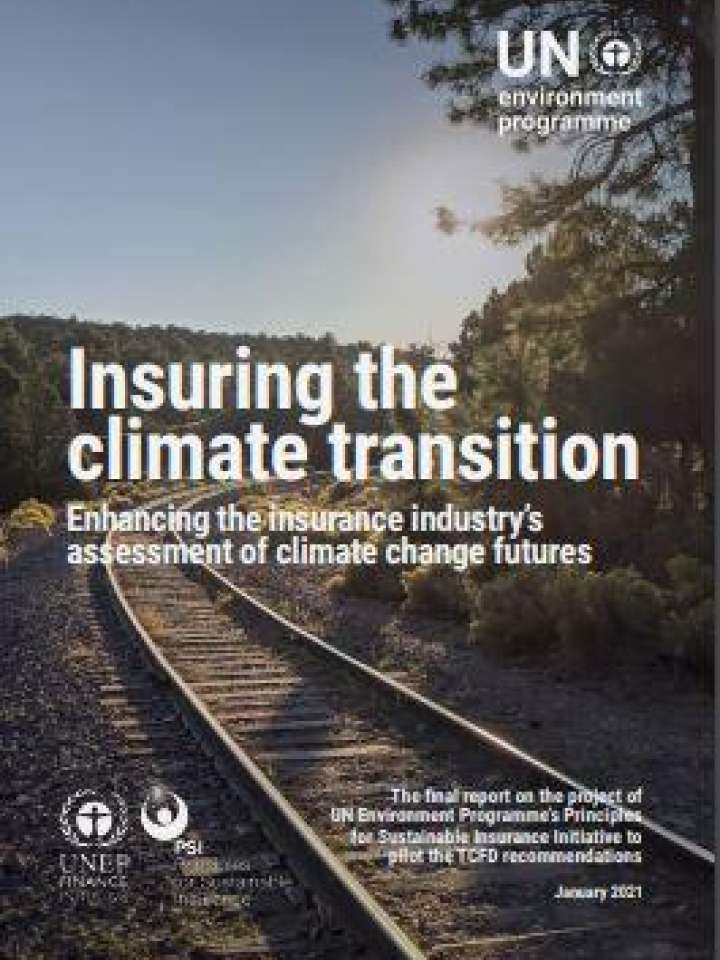Insuring the climate transition: Enhancing the insurance industry’s assessment of climate change futures
This report focuses on the risk manager and insurer roles of the insurance industry. Over the past year, 22 leading insurers and reinsurers have collaborated under the auspices of UN Environment Programme’s (UNEP) Principles for Sustainable Insurance Initiative (PSI) to pilot methodologies that insurers can use to implement the recommendations of the Financial Stability Board’s Task Force on Climate-related Financial Disclosures (TCFD). This study on insurance follows the TCFD studies done by UNEP’s Finance Initiative on banking and investment.
Potential climate change-related risks and opportunities that insurers could face can be classified into three categories.
- Physical risks related to changes in weather patterns, temperature and hydrological conditions
- Transition risks towards a net-zero emissions economy and related fundamental changes in, for example, energy, food and transport systems
- Potential litigation risks pertaining to climate change and breach of underlying legal frameworks on both the business and corporate levels
This document builds on the progress update that was published in September 2020 and serves as the final report of the PSI-TCFD pilot project. The report discusses the overall climate change risk assessment approach, outlines key findings across various lines of insurance business, provides insights on an integrated insurance risk framework for climate-related disclosures, and suggests additional actions to further enhance climate risk management and disclosures in the insurance industry.
Explore further
